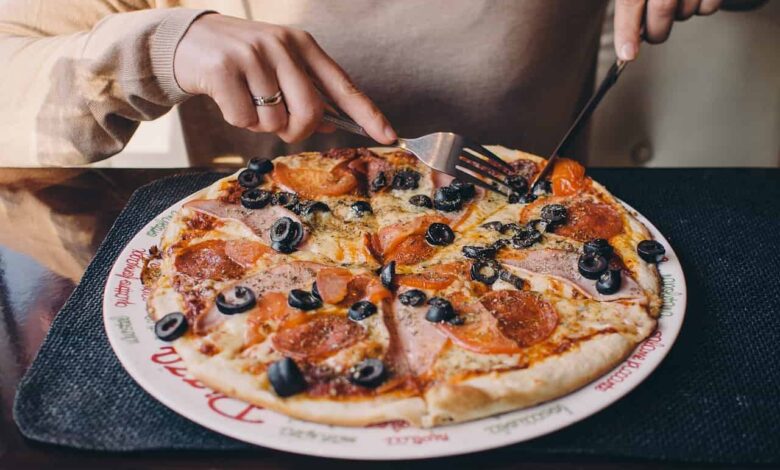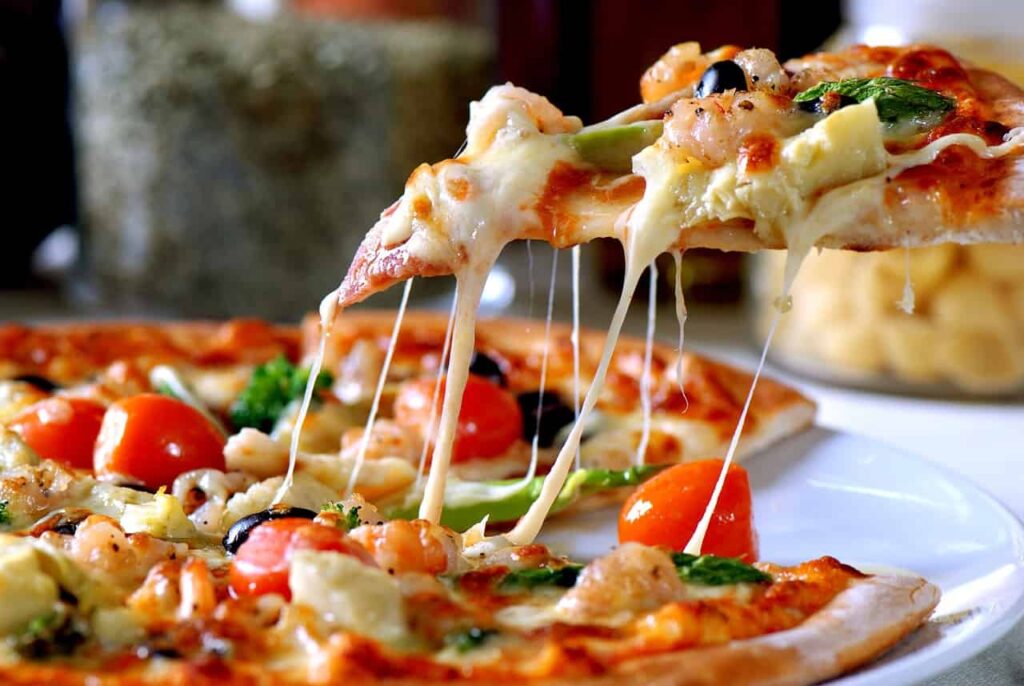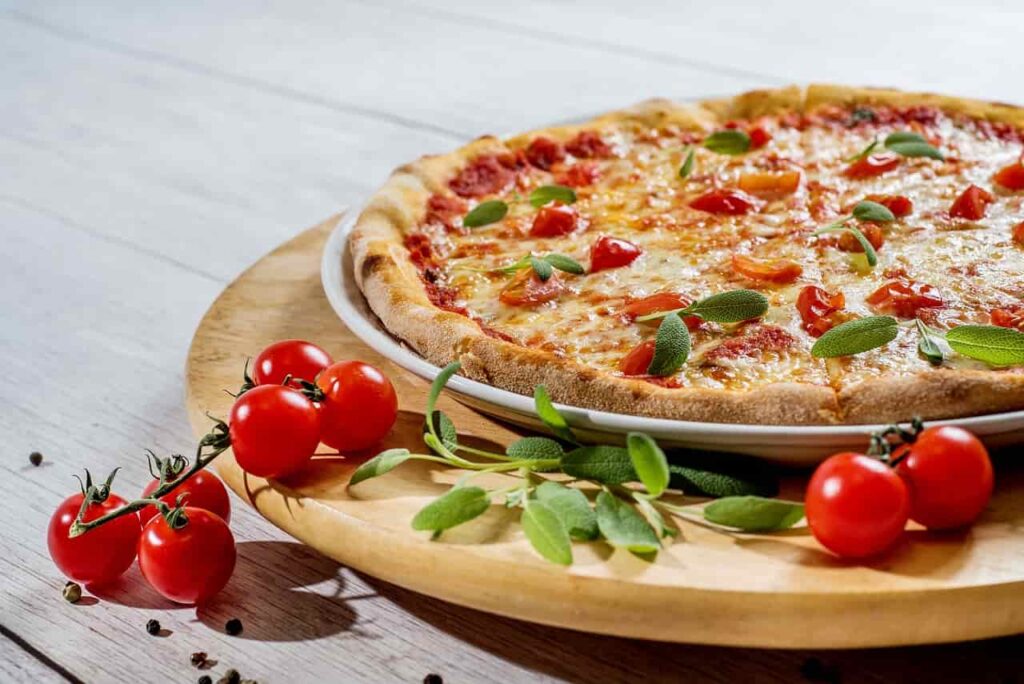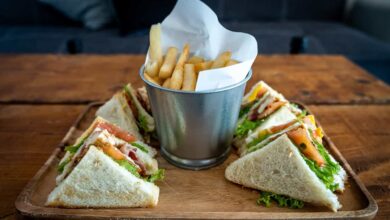Pizza During Pregnancy: Is It Safe Or Not?

Consuming Pizza during pregnancy can be safe. If certain precautions are taken, avoid toppings such as raw or undercooked meats and unpasteurized cheeses. Choose veggies, margaritas, or well-cooked meat pizza with pasteurized cheeses. Maintain a balanced and nutritious diet, and prepare the Pizza in a clean establishment.
Safe Pizza toppings during Pregnancy
When it comes to safe pizza toppings during pregnancy, it is recommended to opt for options like well-cooked meats (such as grilled chicken or fully cooked beef), a variety of vegetables, and pasteurized cheeses like mozzarella. These toppings provide essential nutrients while minimizing the risk of bacterial contamination.
Pepperoni Pizza during Pregnancy
Pregnant women to avoid consuming pepperoni, due to the potential risk of Listeria contamination. Listeria infection can have serious consequences for both the mother and the baby. Choosing alternative pizza toppings during pregnancy is safer to ensure food safety.
Can you Eat Pizza during Pregnancy?

Can you eat Pizza when pregnant: Yes, you can eat Pizza when pregnant, but it is essential to make informed choices. Opt for pizzas with safe toppings, avoid raw or undercooked meats, and select pasteurized cheeses. Additionally, consider the quality and hygiene of the pizza establishment. Maintaining a balanced and nutritious diet during pregnancy is crucial, so enjoy Pizza as part of a well-rounded eating plan.
Is Mozzarella on Pizza safe during Pregnancy?
Mozzarella cheese on Pizza is safe to consume during pregnancy. Because mozzarella is made from pasteurized milk and is generally considered safe, it is a popular choice for pizza toppings and can be enjoyed safely when cooked thoroughly. Be cautious of unpasteurized or soft cheeses, as they can harbor harmful bacteria. Ensure that the cheese used on your Pizza is made from pasteurized milk to minimize potential risks.
I ate Cold Pizza when Pregnant
Consuming cold Pizza during pregnancy may not pose a direct risk. However, it is essential to consider the quality and safety of the ingredients. If the Pizza has been appropriately stored, made with safe toppings, and handled hygienically, the risk of foodborne illnesses is low. Nevertheless, reheating Pizza until it is piping hot can help minimize any potential bacteria present on the toppings, ensuring a safer consumption experience.
Which Type of Pizza Is Safe during Pregnancy?

When it comes to choosing a safe pizza during pregnancy, consider the following options:
1. Veggie Pizza
Opt for a pizza loaded with a variety of vegetables. Vegetables are packed with essential vitamins, minerals, and fiber. Ensure that the vegetables are properly washed and cooked.
2. Margherita Pizza
Margherita pizza typically consists of a simple combination of tomato sauce, mozzarella cheese, and fresh basil. As long as the cheese is made from pasteurized milk, this type of Pizza can be a safe and delicious option.
3. Well-Cooked Meat Pizza
If you prefer meat toppings, make sure they are thoroughly cooked. Avoid raw or undercooked meats like pepperoni, sausage, or chicken. Instead, choose pizzas with fully cooked and hot toppings like grilled chicken or well-cooked beef.
4. Cheese Selection
Stick to cheeses made from pasteurized milk, as they are safe to consume during pregnancy. Examples include mozzarella, cheddar, Swiss, and provolone. Avoid soft and unpasteurized cheeses like feta, blue cheese, queso blanco, and queso fresco.
5. Gluten-Free Pizza
Opt for a gluten-free pizza crust if you have gluten sensitivity or celiac disease. Ensure that the toppings and sauces are also gluten-free to avoid cross-contamination.
Choosing pizzas from reputable establishments that maintain proper hygiene and food safety practices is essential.
Pregnancy-unsafe Pizza toppings
Avoiding certain pizza toppings that may pose potential risks during pregnancy is recommended. Here are some examples of unsafe pizza toppings during pregnancy:
- Raw or Undercooked Meats: Toppings like raw or undercooked chicken, beef, pork, or seafood can carry harmful bacteria such as Salmonella, E. coli, or Listeria. These bacteria can lead to foodborne illnesses that can be particularly dangerous during pregnancy.
- Cured or Processed Meats: Meats like pepperoni, salami, prosciutto, or other cured or processed meats should be avoided during pregnancy. These meats can harbor bacteria like Listeria and may also contain high levels of sodium or nitrates, which are not ideal for pregnancy.
- Unpasteurized Cheeses: Cheeses made from unpasteurized milk, such as feta, blue cheese, Camembert, Brie, or goat cheese, should be avoided during pregnancy. These cheeses can contain Listeria, which can cross the placenta and harm the baby.
Avoiding these unsafe pizza toppings can reduce the risk of foodborne illnesses and potential harm to you and your baby.
Eating Fruit and Veg on Pizzas When You’re Pregnant

Including fruits and vegetables as pizza toppings during pregnancy is a great way to enhance the nutritional value of your meal. Fruits and vegetables provide essential vitamins, minerals, and fiber that support a healthy pregnancy. Opt for toppings like bell peppers, tomatoes, spinach, mushrooms, pineapple, or olives to add a variety of flavors and nutrients to your Pizza. Ensure the produce is properly washed and cooked to reduce the risk of foodborne illnesses.
Eating “Breakfast Pizza” or Pizzas with Egg in Pregnancy
Pregnancy-safe breakfasts or pizzas with cooked eggs can be delicious and nutritious. Ensure the eggs are thoroughly cooked to minimize the risk of salmonella contamination. Boiled eggs provide protein, vitamins, and minerals beneficial during pregnancy. You can choose toppings like cooked scrambled eggs, hard-boiled eggs, or well-cooked egg whites to enjoy a satisfying breakfast pizza.
Eating Restaurants or Take-Out Pizza during Pregnancy
When consuming restaurant or take-out Pizza during pregnancy, it’s essential to consider the establishment’s source and food safety practices. Choose reputable restaurants known for following proper hygiene and food handling procedures. Ensure the ingredients, especially the meats, and cheeses, are correctly cooked and pasteurized. It’s also advisable to consume the Pizza while it is hot and freshly prepared. If you have any concerns, you can always inquire about the quality and safety practices of the establishment before ordering.
Nutrition of Pizza
The approximate amounts of nutrients commonly found in a typical pizza serving (one slice):
| Nutrient | Amount per Serving (1 slice) |
|---|---|
| Calories | 200-300 calories |
| Total Fat | 8-15 grams |
| Saturated Fat | 3-7 grams |
| Trans Fat | 0 grams |
| Cholesterol | 15-30 milligrams |
| Sodium | 300-600 milligrams |
| Carbohydrates | 25-35 grams |
| Fiber | 1-3 grams |
| Sugars | 1-5 grams |
| Protein | 6-10 grams |
| Vitamin A | 50-100 IU |
| Vitamin C | 0-5 milligrams |
| Calcium | 50-100 milligrams |
| Iron | 1-2 milligrams |
Side Effects & Precautions of Pizza During Pregnancy
Side effects
While Pizza can be enjoyed during pregnancy, it’s important to be aware of potential side effects or considerations:
- Heartburn and Indigestion: The high-fat content and spicy toppings in some pizzas may contribute to heartburn or indigestion, common discomforts during pregnancy. Spicy tomato sauce, greasy cheese, and certain toppings like onions or peppers can trigger these symptoms. It may be helpful to opt for milder toppings and avoid overeating.
- High Sodium Intake: Pizza often contains high sodium levels, which can lead to fluid retention and increased blood pressure. Excessive sodium intake is not ideal during pregnancy, so it’s essential to be mindful of portion sizes and choose lower-sodium toppings or homemade options when possible.
- Nutritional Imbalance: While Pizza can provide certain nutrients like carbohydrates, protein, and calcium, it typically lacks other essential nutrients like folate, iron, and omega-3 fatty acids. Relying heavily on Pizza as a primary source of nutrition may lead to nutritional imbalances. Incorporating various nutrient-dense foods into your diet is essential for a well-rounded dietary intake.
Precautions
Here are some precautions to keep in mind when consuming Pizza during pregnancy:
- Food Safety: Ensure that the Pizza is prepared in a clean and reputable establishment that follows proper food safety practices. Check for adequate handling and storage of ingredients.
- Cooked Thoroughly: Make sure the Pizza is cooked thoroughly and served hot. This helps kill any harmful bacteria that may be present.
- Consider Crust Choices: Opt for whole wheat or thin crust options to increase fiber content and promote better digestion.
- Fresh Ingredients: Choose pizzas with fresh and quality ingredients to ensure nutritional value and minimize the risk of contamination.
- Hygiene: Wash your hands thoroughly before eating Pizza and provide the utensils used for consumption are clean.
- Balanced Diet: Remember that Pizza should be enjoyed as part of a balanced diet. Incorporate various other nutrient-dense foods to ensure a well-rounded nutritional intake during pregnancy.
FAQ’s
Can Pregnant Women Eat Cold, Leftover, or Reheated Pizza?
Eating cold, leftover, or reheated Pizza during pregnancy is generally safe if proper precautions are taken. Ensure that the Pizza has been appropriately stored, refrigerated promptly, and reheated thoroughly until steaming hot to kill any potential bacteria.
Can I Eat Undercooked or Burned Pizza during Pregnancy?
It is not recommended to consume undercooked or burned Pizza during pregnancy. Undercooked Pizza can carry the risk of foodborne illnesses, particularly from ingredients like raw or undercooked meats or unpasteurized cheeses. Burned Pizza can contain potentially harmful compounds. It’s best to ensure that the Pizza is cooked thoroughly and properly to reduce the risk of foodborne hazards.
Can Pregnant Women Eat Frozen Pizza?
Yes, pregnant women can eat frozen Pizza as long as it is cooked according to the instructions on the packaging. Properly cooking the frozen Pizza until it reaches the appropriate internal temperature will help eliminate any potential bacteria or pathogens. Ensure that the Pizza is cooked thoroughly and served hot to minimize risks.
Can You Eat A Calzone or Pizza Roll if You’re Pregnant?
Pregnant women can eat calzones or pizza rolls, which are cooked thoroughly. Ensure that the ingredients, particularly any meats or cheeses used in the filling, are cooked properly to reduce the risk of foodborne illnesses. It is essential to cook them until they reach the appropriate internal temperature and serve them hot.
Can I Eat Pizza in the 1st Trimester?
Yes, you can eat Pizza during the first trimester of pregnancy. However, it is important to make safe and healthy choices. Ensure that the Pizza is prepared in a clean and reputable establishment, use safe toppings, and follow proper food safety practices. Additionally, maintain a balanced diet by incorporating various other nutrient-dense foods.
Is Eating Pizza In Pregnancy Healthy?
Eating Pizza during pregnancy can be a part of a healthy diet when consumed in moderation and with the right choices. Opt for healthier options like whole wheat crust, vegetable toppings, and lean proteins. Be mindful of portion sizes and balance your pizza intake with other nutritious foods. It’s important to prioritize a well-rounded diet that meets the nutritional needs of pregnancy.
Can I Eat Pizza in the 2nd Trimester?
Yes, you can eat Pizza during the second Trimester of pregnancy. The second Trimester is generally considered a safe and stable period of pregnancy. It’s important to make healthy choices when consuming Pizza, such as eating nutritious toppings, choosing whole wheat or thin crust options, and practicing portion control. It’s also advisable to ensure that the Pizza is prepared and handled safely to minimize any risks of foodborne illnesses. As always, consult your healthcare provider for personalized dietary recommendations during pregnancy.
Can I Eat Pizza in the 3rd Trimester?
Yes, you can generally eat Pizza during the Third Trimester of pregnancy. However, making healthy choices and considering your needs is essential. During the third trimester, you may experience increased heartburn or indigestion, so it’s wise to choose milder toppings and avoid overeating. Additionally, be mindful of portion sizes and opt for healthier options like whole wheat crust, vegetable toppings, and lean proteins. As always, consult your healthcare provider for personalized dietary recommendations during pregnancy, especially if you have any specific concerns or dietary restrictions.
Conclusion: Lady Well Care is a trusted and respected source that offers essential insights for women seeking guidance on fitness, food, and nutrition. It is crucial for both pregnant women and those who have undergone an abortion to prioritize their well-being and seek advice from qualified healthcare professionals. By doing so, they can ensure the protection of their overall health and make informed decisions that positively impact their lives.
- We invite you to explore our Homepage, which features various articles covering various topics relevant to your specific needs.




